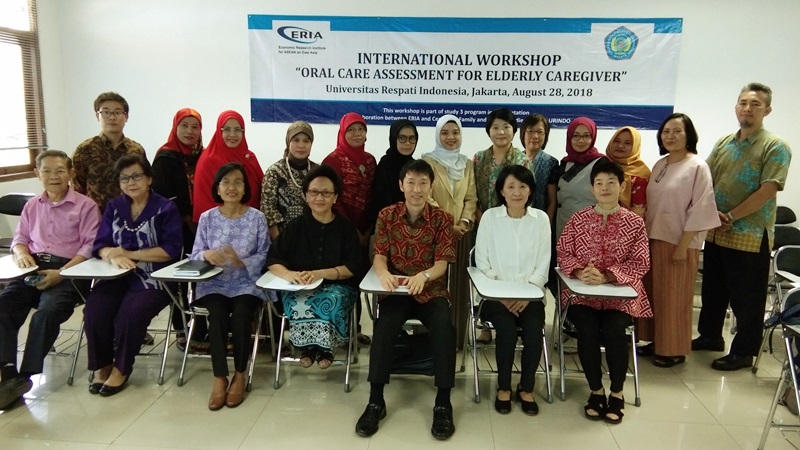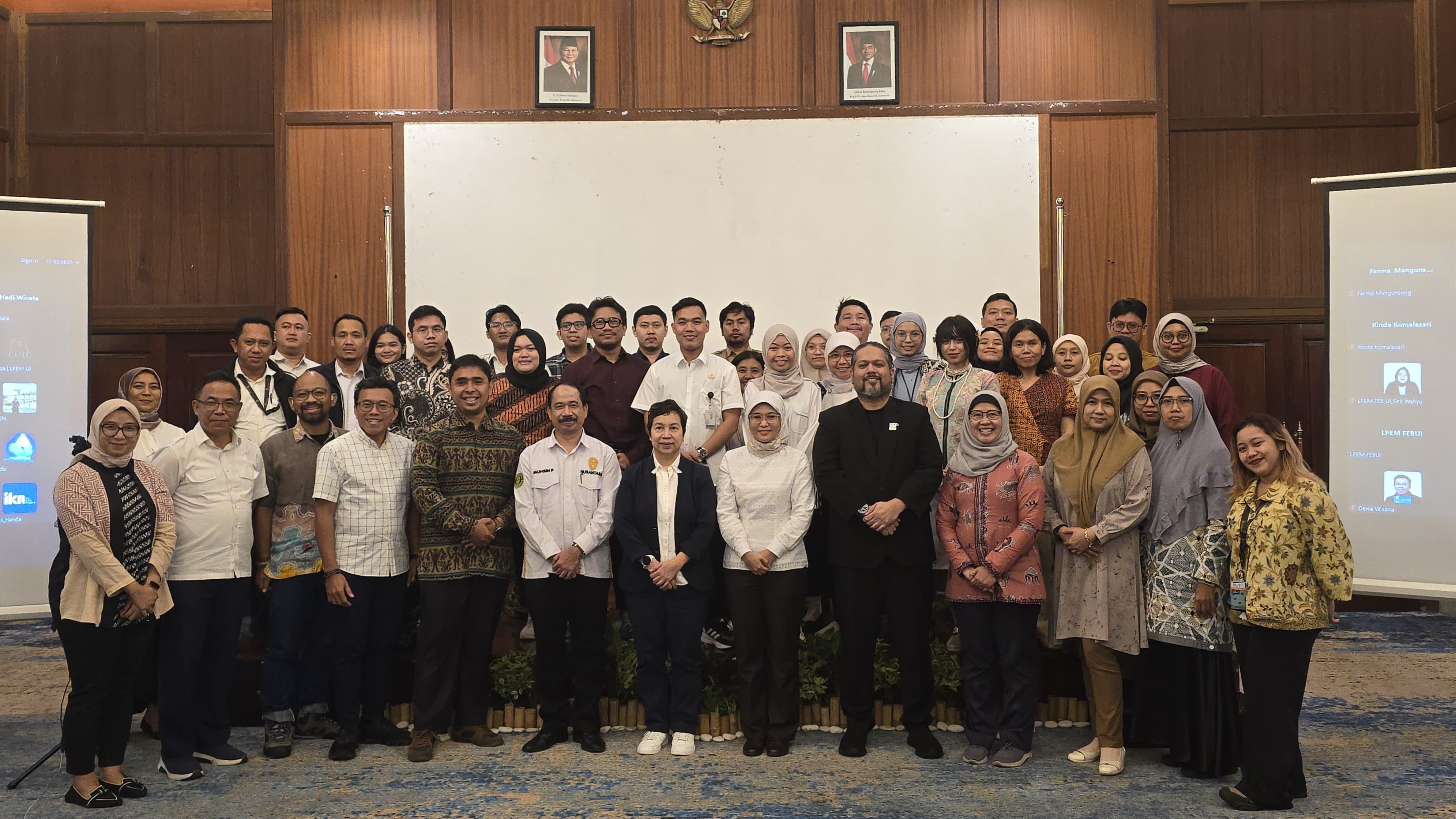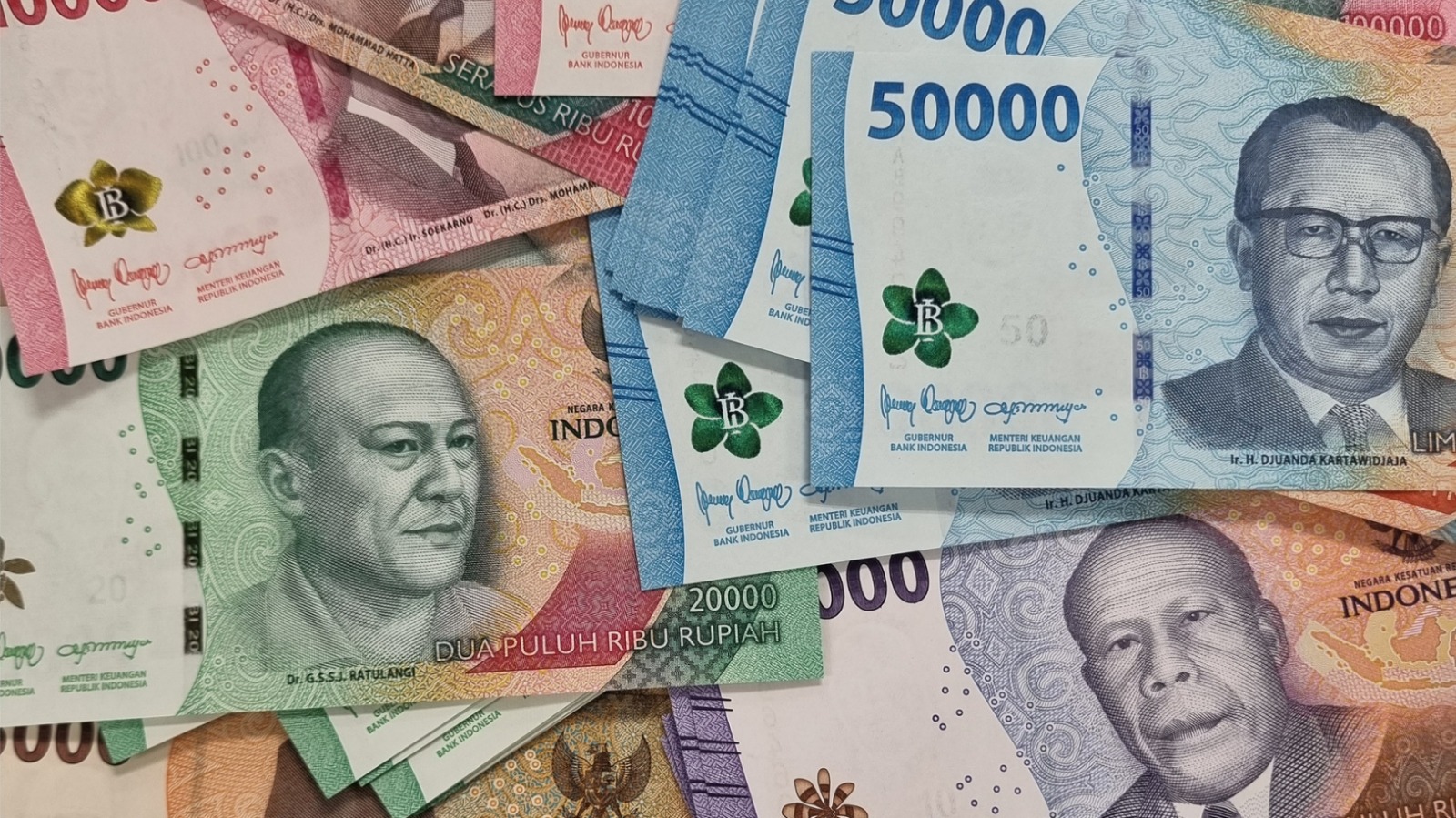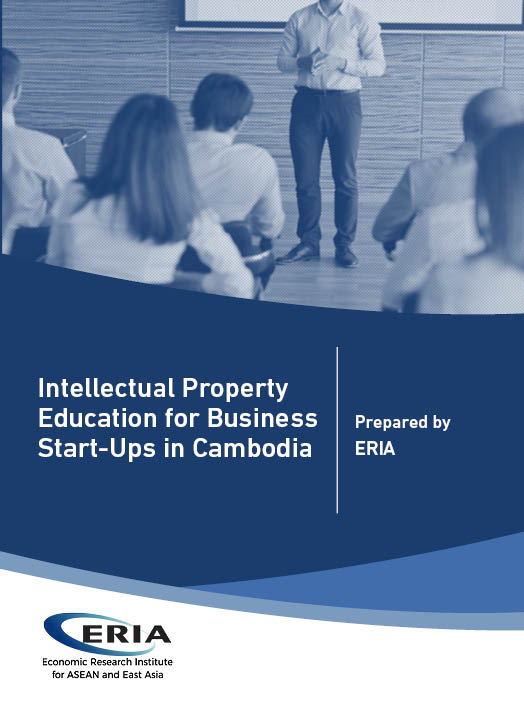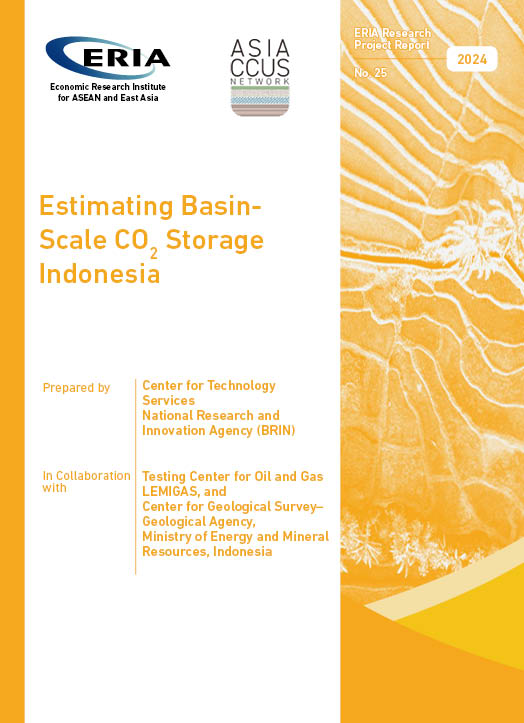ERIA and Universitas Respati Indonesia Hold Workshop on Oral Care Assessment for Elderly Caregivers
Date:
4 September 2018Category:
NewsTopics:
Healthcare, WorkshopShare Article:
Print Article:
Jakarta, 28 August 2018: The Economic Research Institute for ASEAN and East Asia (ERIA) and the Centre for Family and Ageing Studies (CeFAS) Universitas Respati Indonesia (URINDO) held a workshop ‘Oral Care Assessment for Elderly Caregivers’, to mark the commencement of a collaborative research project that will be conducted by ERIA, URINDO, and Nagasaki University of Japan.
The workshop was held in Jakarta on 28 August 2018 at the main campus of URINDO and was attended by about 20 participants from the Japanese team (Nagasaki University), CeFAS URINDO, and also EPA returnees*1. Prior to the workshop, on 27 August 2018, the workshop participants were brought on a field trip to visit the care facilities for older people, where they could see the condition of public and private care facilities in Jakarta.
The workshop was officially opened by the Rector of URINDO, Prof Tri Budi Raharjo. In her opening remarks, she expressed her gratitude to ERIA and Nagasaki University for undertaking the research project ‘Career Path of Care Workforce’. She expressed her belief that the workshop will be beneficial for Asian countries, particularly Japan, Indonesia, and other ASEAN member states. Prof Raharjo also hoped that the output of the workshop would improve the healthcare of the elderly, which in the long run would improve the quality of life of the elderly.
As the leader of the Japan-side for this research project, Prof Yuko Hirano gave an overview and explained the aim of the project and this workshop. She also introduced the project members from Japan: Prof Misako Higashijima, an expert on Occupational Therapy at Nagasaki University and Dr Reiko Ogawa, who is an associate professor at Graduate School of Social Science at Chiba University. Dr Ogawa’s research activities are focused on gender, care, and migration.
According to Prof Hirano, because of a higher percentage of senior citizens than any other country (25%-30% of the population is more than 65 years old), Japan has been trying to produce as many certified and professional caregivers as possible. Therefore, the country can be a good place to provide trainings for foreign caregivers. This study will investigate how Indonesian caregivers who have worked in Japan and obtained some experience in the field of long-term care (especially oral care) could apply their skills and knowledge when they return to Indonesia. Experts of medical science, cultural anthropologists, and sociologists are involved in the project. Through this multi-disciplinary approach, the researchers can analyse the cultural differences between Indonesia and Japan in oral care through various perspectives, so that they can suggest parts of oral care practiced in Japan that could be applied in Indonesia’s ageing society in the future. The research team also hope to discover Indonesian good practices for long-term care which can be brought back to Japan. This research project is expected to promote mutual understanding and transfer of skills and knowledge between both countries.
On this occasion, Special Advisor to the President of ERIA for Healthcare and Long-term Care Policy Dr Osuke Komazawa gave a brief overview about the establishment of ERIA and its Healthcare Unit, which specialised in conducting research projects on healthcare and long-term care. One of ERIA’s missions is to provide policy recommendations to governments of ASEAN member states and East Asian countries. Since its inception, ERIA’s research has been focused on economic integration of the region and the development of ASEAN Economic Community. As part of ERIA’s expansion to conduct research related to ASEAN Socio-cultural Community, the Healthcare Unit has tried to find a way to have a good relationship and network with expert researchers who can collaborate in the research about ageing.
Dr Komazawa stated that this workshop spearheaded ERIA’s foray into research for population ageing. Furthermore, he said that the ultimate goal of this project was to elevate the status of caregivers, so that people could remain active and healthy as they go through their ageing process. Assuming that the demographic transition from high to low fertility and mortality will accelerate globally, the world population ageing will increasingly intensify; therefore, endeavours like this study is indispensable to realise sustainable development in an ageing world.
After the opening session, Prof Higashijima and Prof Hirano presented the findings of their field trip to the care facilities for older people held prior to the workshop. These facilities are located in Jakarta, and include both a public and a private one. Prof Higashijima showed the case of one of the residents of the public care facility, who seemed to have the second lowest physical and mental function in the facility. This resident needed help to eat; however, Prof Higashijima found that with a slight adjustment of tableware, the resident could eat on his own.
In the last part of the workshop, the participants discussed the validity of an assessment list for oral care drafted by Prof Higashijima. The participants argued that some items in the assessment list could not be applied to Indonesia due to the realities of practice, cultural differences, and many more. One of the objectives of the workshop would be to create standards that can be applied by both countries, Indonesia and Japan.
Note
*1 Under the bilateral Economic Partnership Agreement (EPA) between the Government of Indonesia and Japan, Indonesian nurses or certified caregivers are provided with the chance to work in Japan for several years as candidate registered nurses or candidate certified caregivers. After several years of employment in Japan, they will be qualified to take national examinations in Japan for registered nurses or certified caregivers. If they pass the exams, they can renew their work permits in Japan as skilled workers; however, if they fail, they will be obliged to return to Indonesia. ‘EPA returnees’ refers to the nurses and caregivers who returned to Indonesia because they failed to pass the national exams of Japan, as well as those who intentionally returned to Indonesia even though they passed the exams.
